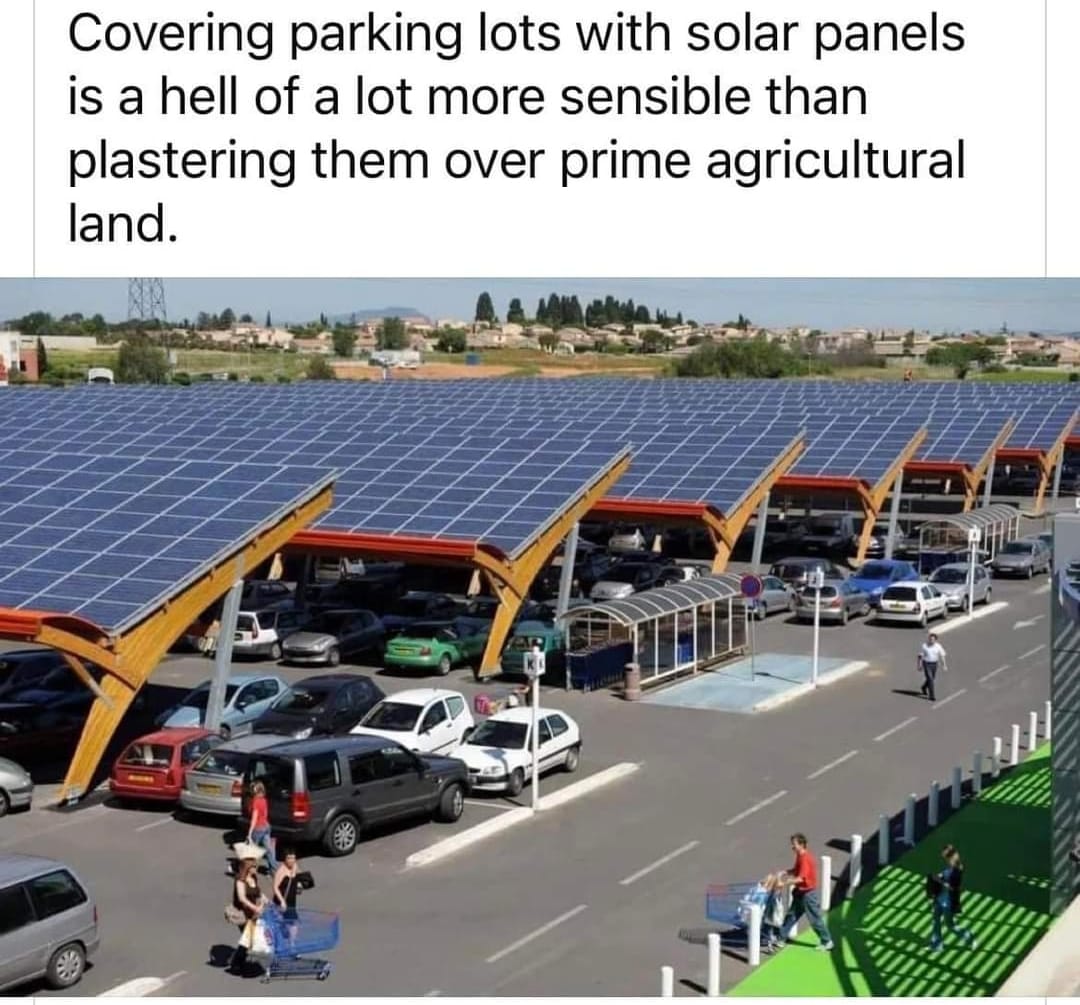this post was submitted on 13 Jul 2024
1035 points (98.4% liked)
196
16811 readers
2148 users here now
Be sure to follow the rule before you head out.
Rule: You must post before you leave.
founded 2 years ago
MODERATORS
you are viewing a single comment's thread
view the rest of the comments
view the rest of the comments

When solar farms are more than like 0.01% of land utilization then maybe its worth caring about.
For the same land you can power a household or get like 14 pounds of beef. who cares.
Just install solar panels where its cheapest, which is going to be an empty field where you can install a ton and get better labor efficiency during the install. Making green energy more expensive to install only benefits fossil fuel companies.
back of napkin math
Average household is about 10000 kWh annually Solar farms conservatively produce 350MWh/year/acre
so 1/35 of an acre to power a home
roughly 3000 pounds of soybeans per acre becomes roughly 500 pounds of beef/acre.
500*(1/35) = 14.2
This image (ignoring the fact that it's not a real photo) seems to be based in the UK/ England from the car number plate designs. (though the background houses and the cloudless sky were plainly photoshopped from somewhere else )
I think UK has approx 0.1% of agricultural land already given to solar (but I don't know the land classification breakdown).
It is just enough to be noticeable traveling around you do see the occasional normal looking fields with panels all over them.
I've not seen them on the hilly low grade sheep pasture either I guess it might be areas prone to flooding , I'm not sure. It looks like this trade association is looking to expand this to c0.6%. https://solarenergyuk.org/wp-content/uploads/2024/06/FactSheet-Solar-Farms-and-Agricultural-Land-2024.pdf
UK is not self sufficient on food, so I think it's a poor idea to use UK farmland for this stuff before using up rooftops and car parks and stuff like that for solar PV.
USA is obviously a different situation with way more land - better food security - and in some places more things like deserts to put large scale panels in. But either way brownfield or parking lots seems like a good think to think about - and it can be closer to demand so may reduce transmission and distribution losses and infra costs. I guess most of the farmland in UK ones are probably near existing power lines to keep the grid connection cost down.